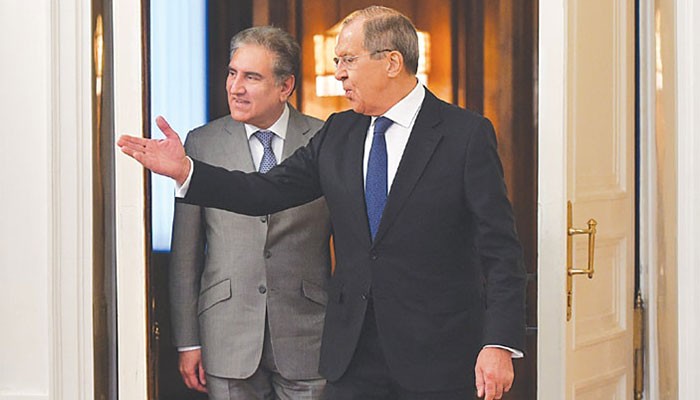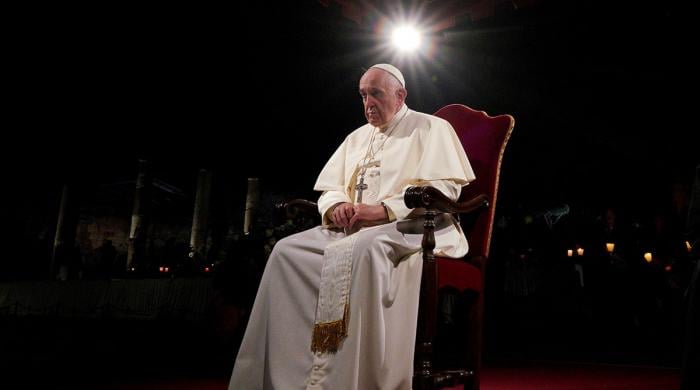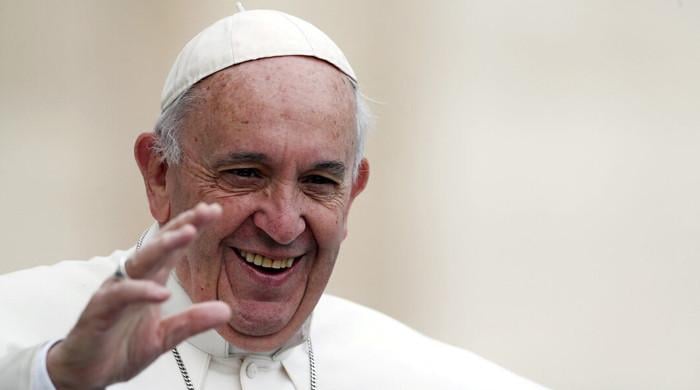UNSC meets on situation in occupied Kashmir, urges parties to 'refrain from unilateral action'
UNSC met behind closed doors to discuss India’s recent decision to revoke the special status of occupied Kashmir
August 16, 2019
NEW YORK: Members of the United Nations Security Council (UNSC) met for the first time in over five decades on Friday to discuss the critical situation in Indian occupied Kashmir, urging parties to the dispute to refrain from taking any unilateral action.
The UNSC met behind closed doors at the request of China and Pakistan to discuss the Indian government's recent decision to revoke the special status of Occupied Kashmir.
The council had taken up the issue of the critical situation in Indian Occupied Kashmir after more than 50 years since it was last discussed on the platform, effectively rejecting India's stance that occupied Kashmir was an internal issue and not an internationally recognised dispute.
Pakistan's Permanent Representative to the United Nations, Maleeha Lodhi, welcomed the UNSC meeting and said the country was "grateful to China for calling this meeting".
"The voice of the Kashmiri people have been heard today. The fact that this meeting took place is testimony to the fact that this is an internationally recognised dispute. This meeting has reaffirmed the validity of the UNSC resolutions on the status of Jammu and Kashmir," she said, speaking to reporters after the meeting.
"I think this meeting nullifies that Jammu and Kashmir is an internal matter for India.
She said the Pakistan Foreign Minister Shah Mehmood Qureshi had conveyed that this was "the first step that we (Pakistan) have taken on behalf of the people of Jammu and Kashmir…the first but not the last step".
'Security Council members urge parties refrain from unilateral action'
Speaking to reporters after the UNSC meeting, Chinese ambassador to the UN Zhang Jun said members of the Security Council feel serious concern regarding the human rights situation in Indian occupied Jammu and Kashmir, and that parties to the dispute should refrain from unilateral action that may aggravate the situation.
Zhang told reporters that the situation in Kashmir is "already very tense and very dangerous."
"The Security Council has just held an informal consultation and listened very carefully to the briefings and reports from the secretariat including the briefing from the military observer group on the ground that helped us understand the situation better. The Secretary-General also issued a statement a few days ago," said Zhang.
"Members have expressed that there are serious concerns concerning the situation in Jammu and Kashmir. They are also concerned about the human rights situation there and it is the general view of the members that parties concerned should refrain from taking any unilateral action which might further aggravate tensions."
"China holds the view that the issue of Jammu Kashmir is an issue left from history between India and Pakistan. According to UNSC resolutions, the status of Kashmir is undecided and it is an internationally recognized dispute. The Kashmir issue should be resolved properly through peaceful means in accordance with the UN charter, the relevant SC resolutions and bilateral agreements. This represents the international community's consensus," said China's ambassador to the UN.
"It is obvious that the constitutional amendment by India has changed the status quo in Kashmir, causing tension in the region. China is deeply concerned about the current situation and opposes any unilateral action that complicates the situation," he added.
Diplomatic victory for Pakistan
It is extremely rare for the Security Council to discuss Kashmir, which has been divided between India and Pakistan since independence from Britain in 1947. The last time there was a full Security Council meeting on the Himalayan region was in 1965.
Friday's discussion was not considered a full security meeting but rather referred to as closed-door consultations, diplomats said.
Pakistan had called for an urgent meeting of the UNSC on Monday in a letter to UNSC President Joanna Wronecka.
“Pakistan will not provoke a conflict. But India should not mistake our restraint for weakness,” Foreign Minister Shah Mehmood Qureshi wrote in the letter.
“If India chooses to resort again to the use of force, Pakistan will be obliged to respond, in self-defence, with all its capabilities,” he said, adding that “in view of the dangerous implications” Pakistan requested the meeting.
The August 5 decision by India blocks the right of Occupied Kashmir to frame its own laws and allows non-residents to buy property there. Telephone lines, internet and television networks have been blocked and there are restrictions on movement and assembly.
The UNSC adopted several resolutions in 1948 and in the 1950s on the dispute between India and Pakistan over the region, including one which says a plebiscite should be held to determine the future of the disputed valley.
UN peacekeepers have been deployed since 1949 to observe a ceasefire between India and Pakistan in occupied Kashmir.
— With additional information from AFP and Reuters













